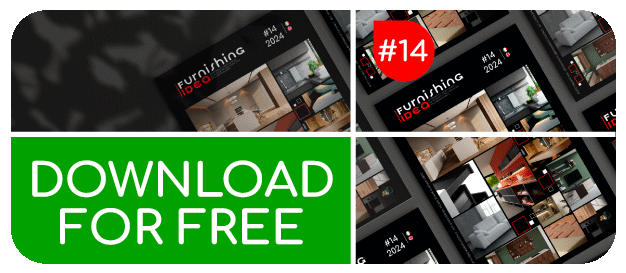
The situation experienced during this period, which forced us to suspend all activities, seems to be evolving towards positive outcomes. The lockdown has urged many companies to rethink their production logic, work organization and strategies to return stronger than before to world markets.
In this column we are telling how companies are preparing to face the future. We also wanted to involve the organizers of the most important trade fairs in the sector, considering that the trade fairs with the entire supply chain of hotels, restaurants, services and transport have been put to the test by this pandemic.
Carlo Giobbi, CEO of Sicam, the International Exhibition of components, semi-finished products and accessories for the furniture industry, scheduled from 13 to 16 October, believes it is essential that the event is not distorted and that those who will be at the fair can work and communicate effectively, compatibly with the restrictions that will be imposed.
This situation has prompted the use of new ways of communication, especially via the web. What repercussions will it have on the future organisation of trade fairs?
“It's true: many exhibition organizers have chosen to activate initiatives on the web to somehow substitute the event. But obviously this is something very different, too much in my opinion: the fair is basically a container of ideas, projects and products around which people meet. And the key is right here: in the meeting between people, which generates comparison and exchange of opinions and experiences. The aggregation, which represents the critical element of these months, is the substantial success factor of the fairs: especially those like SICAM, which make high level professional relationships the qualifying element for which the world of components and accessories every year is in Pordenone. We must be able to ensure, as always, an effective trade fair through its physical and material realization: that is, we must find a way to bring people together and communicate with each other in a safe way“.
Do you foresee that there will be substantial changes in the organization of the next edition in relation to the evolution of the emergency?
“The security measures we are hearing about these days will certainly bring about changes, but we will have to understand how these will impact on the structure of SICAM: the trade fair sector, with all the hotels, restaurants, services and transport, is being put to the test by this pandemic. Personally, I believe it is essential that those who will be at the fair can work and communicate effectively, compatibly with the restrictions that will be imposed. For us, this is the basic criterion: if we cannot ensure working conditions that are very similar to the usual ones, we will, of course, assess the opinions of our exhibitors as well. I feel there is a great desire on the part of many to return to doing business at the fair: I cannot imagine, however, that the very essence of our event will be distorted, which is precisely to create and always grow personal and direct relationships between the international players of accessories and components with those of the world furniture industry. Participating in SICAM represents an important investment, and our task is to ensure the right conditions for every company present to obtain the expected returns“.
Do you think the virtual fair will have a future?
“Virtual fair in my opinion is an oxymoron that comments itself. Internet and the web have existed for more than twenty years now, but their function is another: they are constantly active tools but they are also cold and can only be complementary to fairs; and vice versa fairs are based on bringing people together around the physically present product, perhaps already known on the Internet. As I have already pointed out, trade fairs have maintained their strong raison d'être in recent years precisely because they are the element that brings people together, creates relationships and promotes the direct development of business and projects. And nothing can ever have the same value as the direct relationship between people: we are seeing this also in these periods of smart working, which is certainly functional to maintain a minimum level of operations but not sufficient to compensate for the validity and effectiveness of the direct meetings that take place every day in the workplace. In this sense, I personally believe that reconstituting on the web, under the brand of a trade fair, a compendium of online catalogues of the companies that would normally exhibit with their stands is a useless duplication and poor effectiveness of the communication that these same companies already carry out during the year, according to their precise marketing strategies“.


 en
en  Italian
Italian French
French German
German Spanish
Spanish Portuguese
Portuguese










